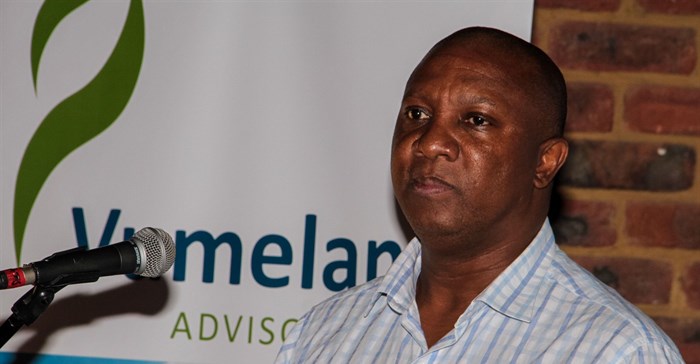This according to Peter Setou, chief executive of the Vumelana Advisory Fund, speaking at the first of the series of roadshows in the North West.
Peter Setou CE @vumelana #Landreform is high on South Africa’s political agenda. However, few rural communities have fully benefited from ownership of their land. This is because they are unable to raise the capital or acquire the skills needed to use the land productively. pic.twitter.com/G8pXWZfb3x
— VumelanaAdvisoryFund (@vumelana) November 15, 2017
"There is a lot of public attention on the manner and pace of land transfer, but less attention is given to what happens after the transfer takes place," said Setou. “Some of the challenges that beneficiaries face include compliance with basic governance requirements, a lack of understanding of how to make land profitable as well as a lack of understanding of the impact the failure to land reform can have on the country."
"It is important for communities to know and understand that measures are in place to improve processes and that assistance is available to them," says Setou. "Food security, sustainability of communities, and political and economic stability are some of the issues we need to bear in mind when addressing issues of land reform.”

Over the duration of the land reform roadshows, Vumelana will be explaining to communities the different scenarios or situations that can arise in the South African land reform space and what the options are. These scenarios were put together by a team of 40 experts to map out four possible outcomes of the land reform programme. These scenarios are as follows:
Scenario 1, Connection and Capture: gives a description of what can happen should government allocate land haphazardly to get support ahead of the 2019 elections. Such a move is likely to benefit the politically connected to capture land reform for their own purposes.
Scenario 2, Market power and Concentration: describes what can happen should the government decide to accelerate land reform through community-private partnerships. Such a move would lead to a large transfer of commercial farmland to black South Africans, but would not necessarily bring about the necessary reform in the structure of agriculture.
Scenario 3, Occupation and Confiscation: Explains what can happen if South Africans opt for land invasion in the face of deepening hardship.
Scenarios 4, Hard bargaining and Compromise: Describes what can happen if South Africans agree to equitable land sharing. In such a scenario, land reform would become a shared responsibility among a wide range of actors, supported by an enabling state that is committed to pro-poor land and agricultural reform.
“We believe that it is important that the beneficiaries of the land reform programme understand and appreciate that political developments may radically change the outcome of the land reform programme. It is, therefore, important that we create awareness of the possible outcomes, or scenarios, and educate those at the heart of the land reform so that they have information that empowers them to make informed decisions on the issue of land reform,” says Setou.
The second leg of the future of land reform roadshow will take place on Wednesday 22 November 2017, at the ALDAM Holiday Resort & Conference Centre, Ventersburg and the next on 28 November in KwaZulu Natal.